Hyundai i30 vs Toyota Aygo - Differences and prices compared
Compare performance (140 HP vs 72 HP), boot space and price (24000 £ vs 15500 £ ) at a glance. Find out which car is the better choice for you – Hyundai i30 or Toyota Aygo?
Costs and Efficiency:
Looking at overall running costs, both models reveal some interesting differences in everyday economy.
Toyota Aygo has a convincingly advantage in terms of price – it starts at 15500 £ , while the Hyundai i30 costs 24000 £ . That’s a price difference of around 8486 £.
Fuel consumption also shows a difference: Toyota Aygo manages with 4.80 L and is therefore slightly more efficient than the Hyundai i30 with 5.70 L. The difference is about 0.90 L per 100 km.
Engine and Performance:
Under the bonnet, it becomes clear which model is tuned for sportiness and which one takes the lead when you hit the accelerator.
When it comes to engine power, the Hyundai i30 has a clearly edge – offering 140 HP compared to 72 HP. That’s roughly 68 HP more horsepower.
In acceleration from 0 to 100 km/h, the Hyundai i30 is significantly quicker – completing the sprint in 9.60 s, while the Toyota Aygo takes 15.50 s. That’s about 5.90 s faster.
In terms of top speed, the Hyundai i30 performs slightly better – reaching 197 km/h, while the Toyota Aygo tops out at 158 km/h. The difference is around 39 km/h.
There’s also a difference in torque: Hyundai i30 pulls decisively stronger with 253 Nm compared to 93 Nm. That’s about 160 Nm difference.
Space and Everyday Use:
Cabin size, boot volume and payload all play a role in everyday practicality. Here, comfort and flexibility make the difference.
Seats: Hyundai i30 offers to a small extent more seating capacity – 5 vs 4.
In curb weight, Toyota Aygo is noticeable lighter – 1015 kg compared to 1291 kg. The difference is around 276 kg.
In terms of boot space, the Hyundai i30 offers clearly more room – 395 L compared to 231 L. That’s a difference of about 164 L.
In maximum load capacity, the Hyundai i30 performs noticeable better – up to 1301 L, which is about 472 L more than the Toyota Aygo.
When it comes to payload, Hyundai i30 noticeable takes the win – 509 kg compared to 345 kg. That’s a difference of about 164 kg.
Who comes out on top?
Overall, the Hyundai i30 shows itself to be is largely superior and secures the title of DriveDuel Champion.
It convinces with the more balanced overall package and proves to be the more versatile choice for everyday use.
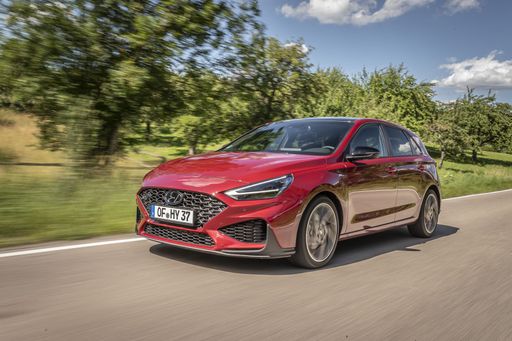
Hyundai i30
Costs and Consumption
View detailed analysis
Engine and Performance
View detailed analysis
Dimensions and Body
View detailed analysis
Hyundai i30
The Hyundai i30 proves that sensible can also be stylish, offering a confident driving character wrapped in neat, modern design. It serves up a roomy, well-equipped cabin and composed ride that make everyday motoring feel like a clever purchase rather than a compromise.
details
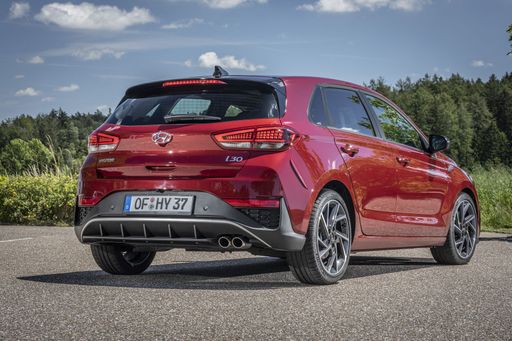
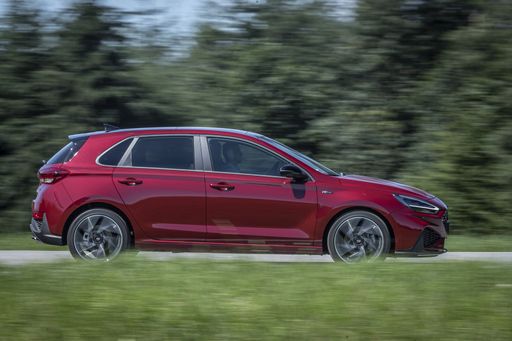
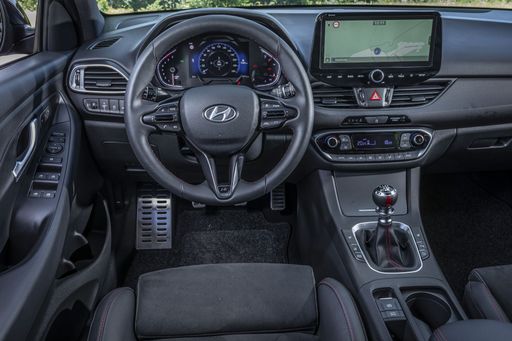
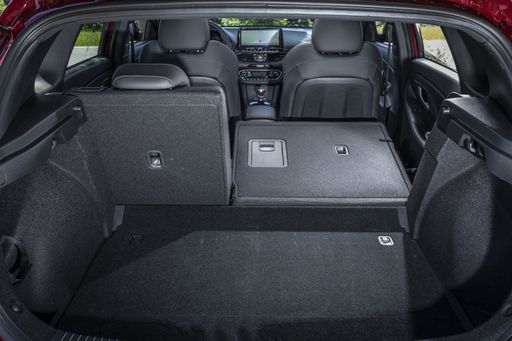
Toyota Aygo
The Aygo is a cheeky city car that turns congested streets into a playground, with bold styling and sprightly manners that make parking a pleasure rather than a pain. Economical to run and surprisingly well equipped for its size, the Aygo is a smart choice for urban buyers who want personality without a premium price and a car that brings a smile to the daily commute.
details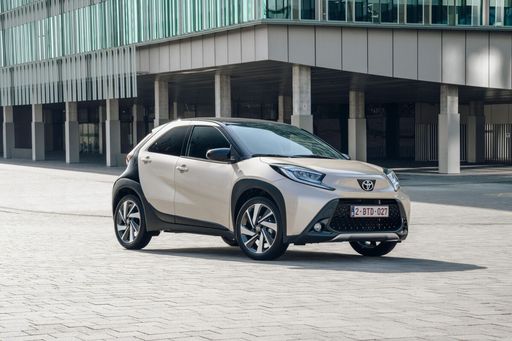
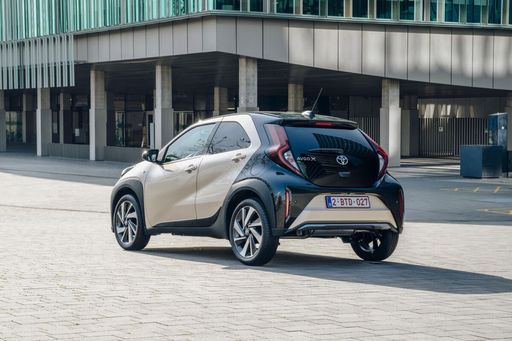
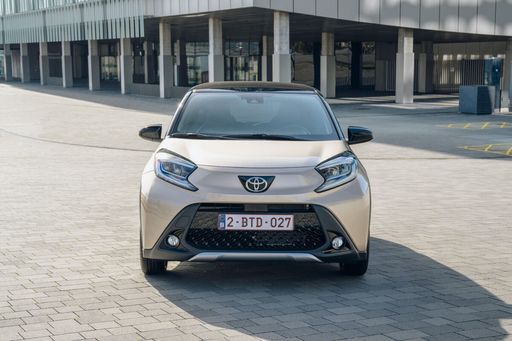
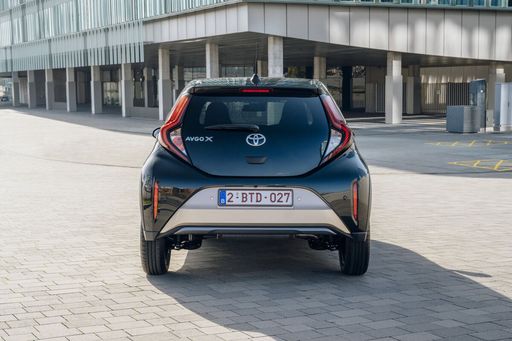
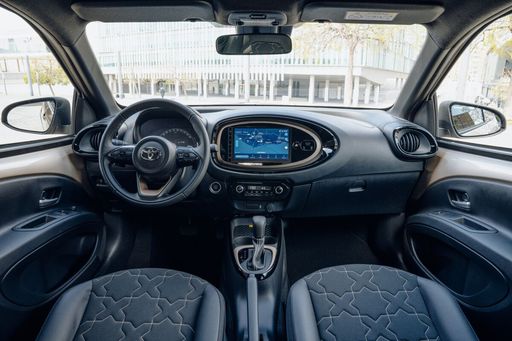
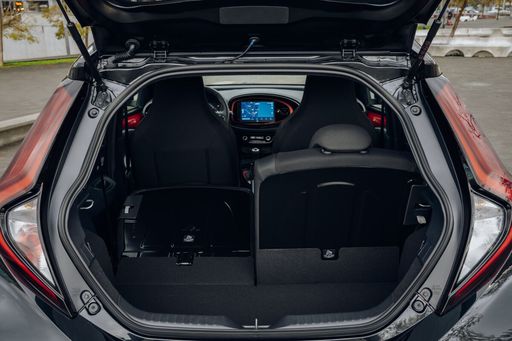
Costs and Consumption |
|
|---|---|
|
Price
24000 - 29300 £
|
Price
15500 - 22100 £
|
|
Consumption L/100km
5.7 - 6 L
|
Consumption L/100km
4.8 - 4.9 L
|
|
Consumption kWh/100km
-
|
Consumption kWh/100km
-
|
|
Electric Range
-
|
Electric Range
-
|
|
Battery Capacity
-
|
Battery Capacity
-
|
|
co2
130 - 136 g/km
|
co2
108 - 111 g/km
|
|
Fuel tank capacity
50 L
|
Fuel tank capacity
35 L
|
Dimensions and Body |
|
|---|---|
|
Body Type
Hatchback
|
Body Type
SUV
|
|
Seats
5
|
Seats
4
|
|
Doors
5
|
Doors
5
|
|
Curb weight
1291 - 1407 kg
|
Curb weight
1015 kg
|
|
Trunk capacity
395 L
|
Trunk capacity
231 L
|
|
Length
4340 mm
|
Length
3700 mm
|
|
Width
1795 mm
|
Width
1740 mm
|
|
Height
1455 mm
|
Height
1510 mm
|
|
Max trunk capacity
1301 L
|
Max trunk capacity
829 L
|
|
Payload
463 - 509 kg
|
Payload
345 kg
|
Engine and Performance |
|
|---|---|
|
Engine Type
Petrol, Petrol MHEV
|
Engine Type
Petrol
|
|
Transmission
Manuel, Automatic
|
Transmission
Manuel, Automatic
|
|
Transmission Detail
Manual Gearbox, Dual-Clutch Automatic
|
Transmission Detail
Manual Gearbox, CVT
|
|
Drive Type
Front-Wheel Drive
|
Drive Type
Front-Wheel Drive
|
|
Power HP
100 - 140 HP
|
Power HP
72 HP
|
|
Acceleration 0-100km/h
9.6 - 13.1 s
|
Acceleration 0-100km/h
15.5 - 15.6 s
|
|
Max Speed
178 - 197 km/h
|
Max Speed
151 - 158 km/h
|
|
Torque
172 - 253 Nm
|
Torque
93 Nm
|
|
Number of Cylinders
3 - 4
|
Number of Cylinders
3
|
|
Power kW
74 - 103 kW
|
Power kW
53 kW
|
|
Engine capacity
998 - 1482 cm3
|
Engine capacity
998 cm3
|
General |
|
|---|---|
|
Model Year
2024
|
Model Year
2024 - 2025
|
|
CO2 Efficiency Class
D, E
|
CO2 Efficiency Class
C
|
|
Brand
Hyundai
|
Brand
Toyota
|
What drive types are available for the Hyundai i30?
Available configurations include Front-Wheel Drive.




